



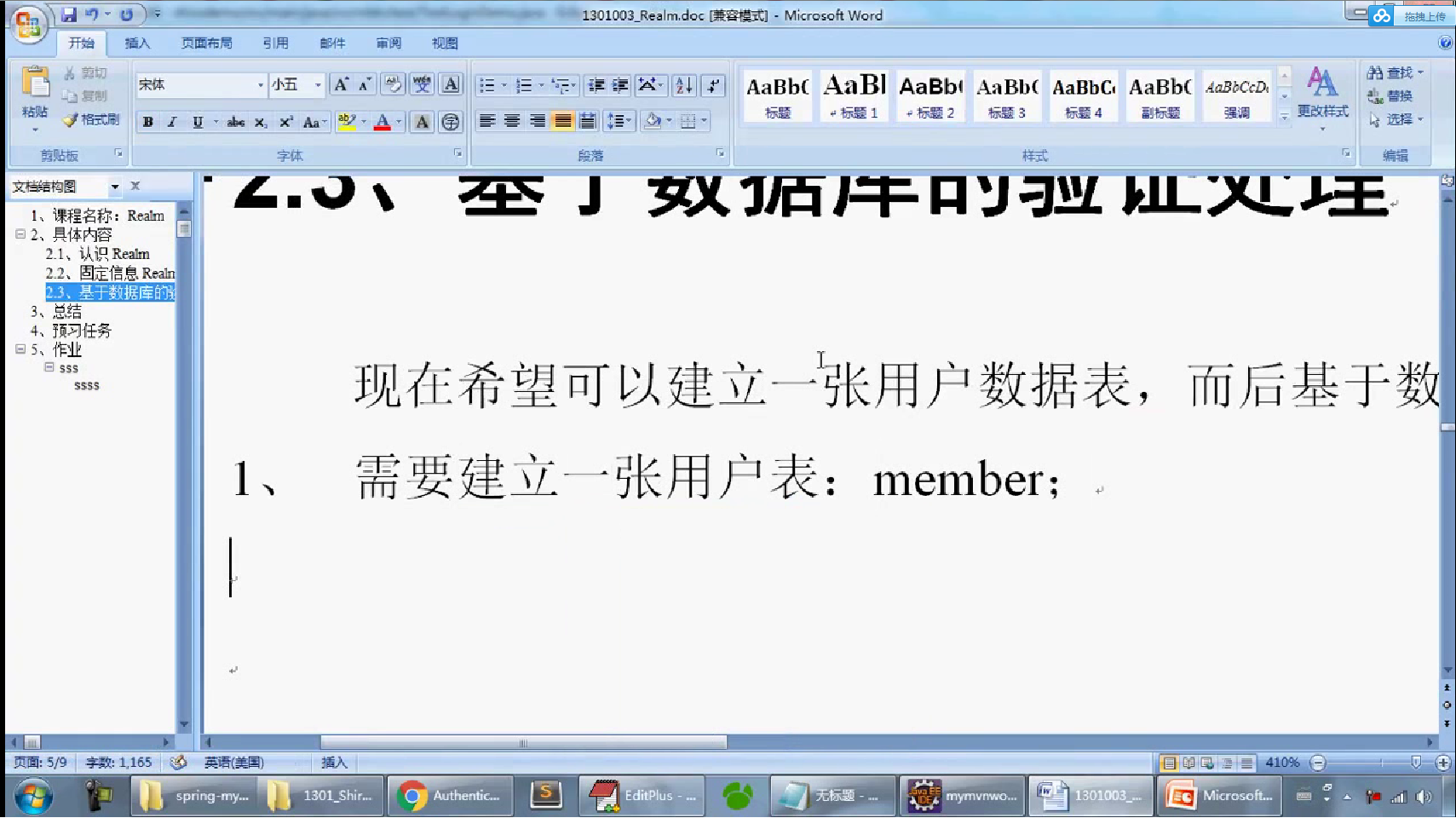
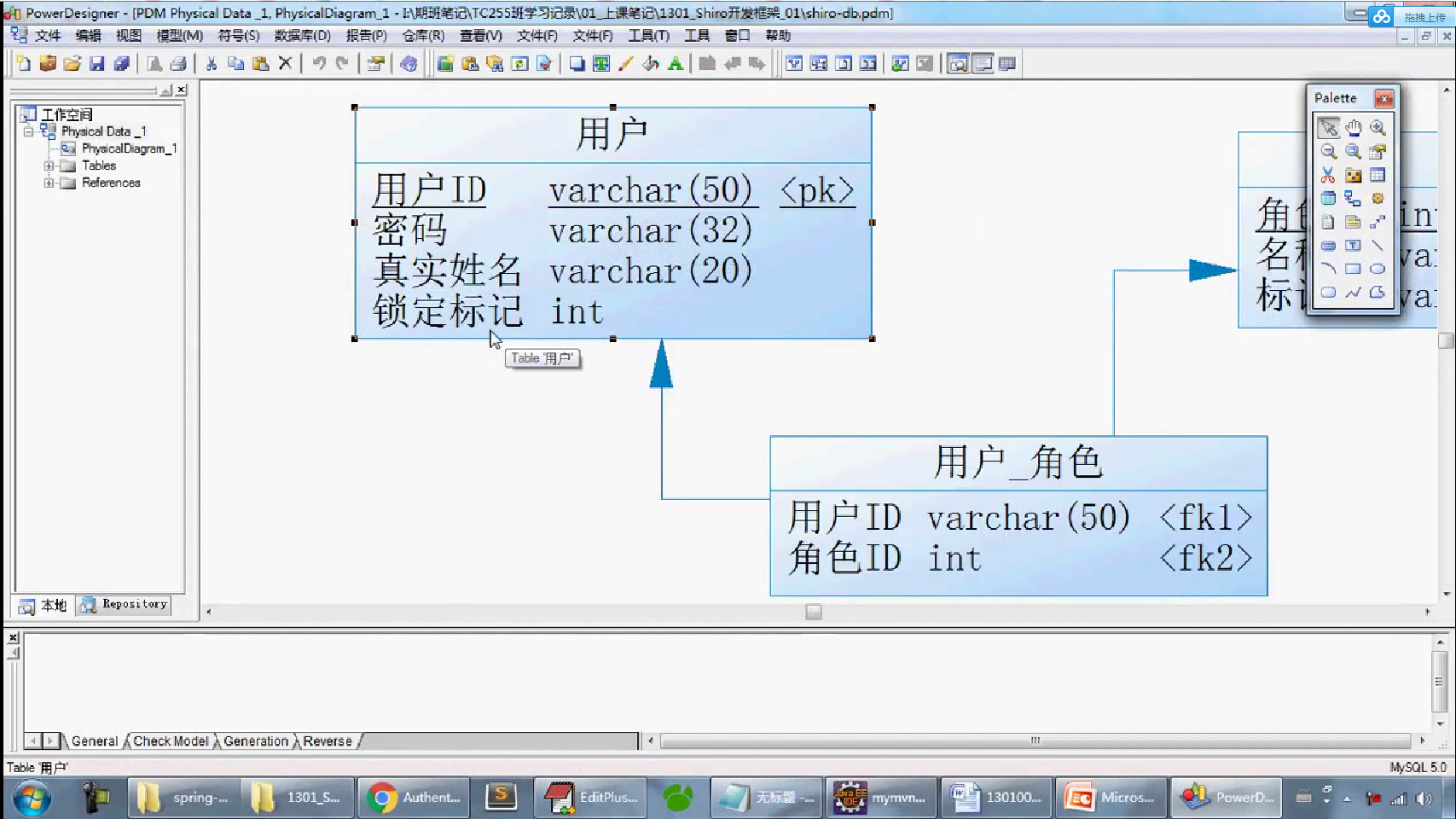
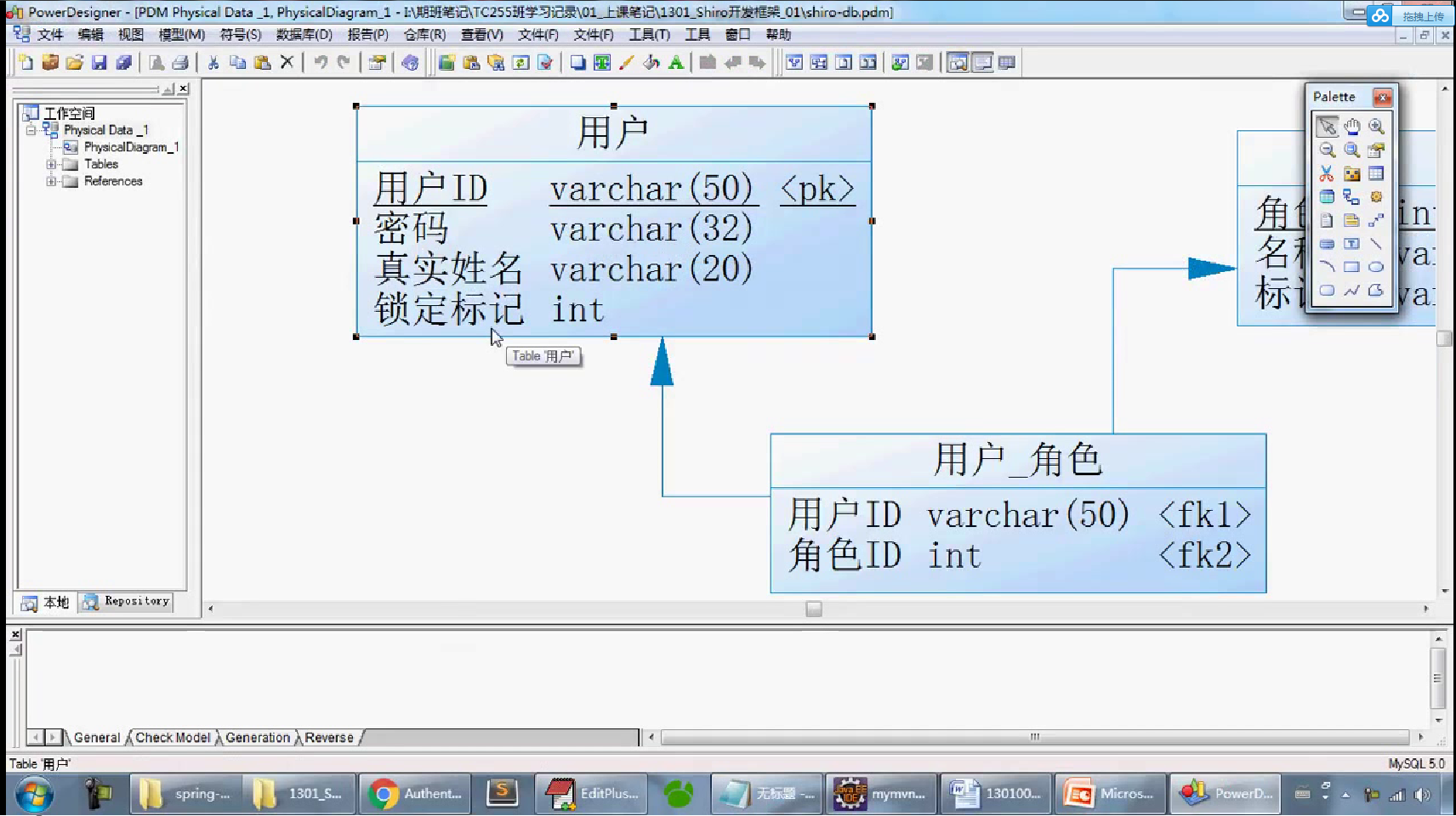

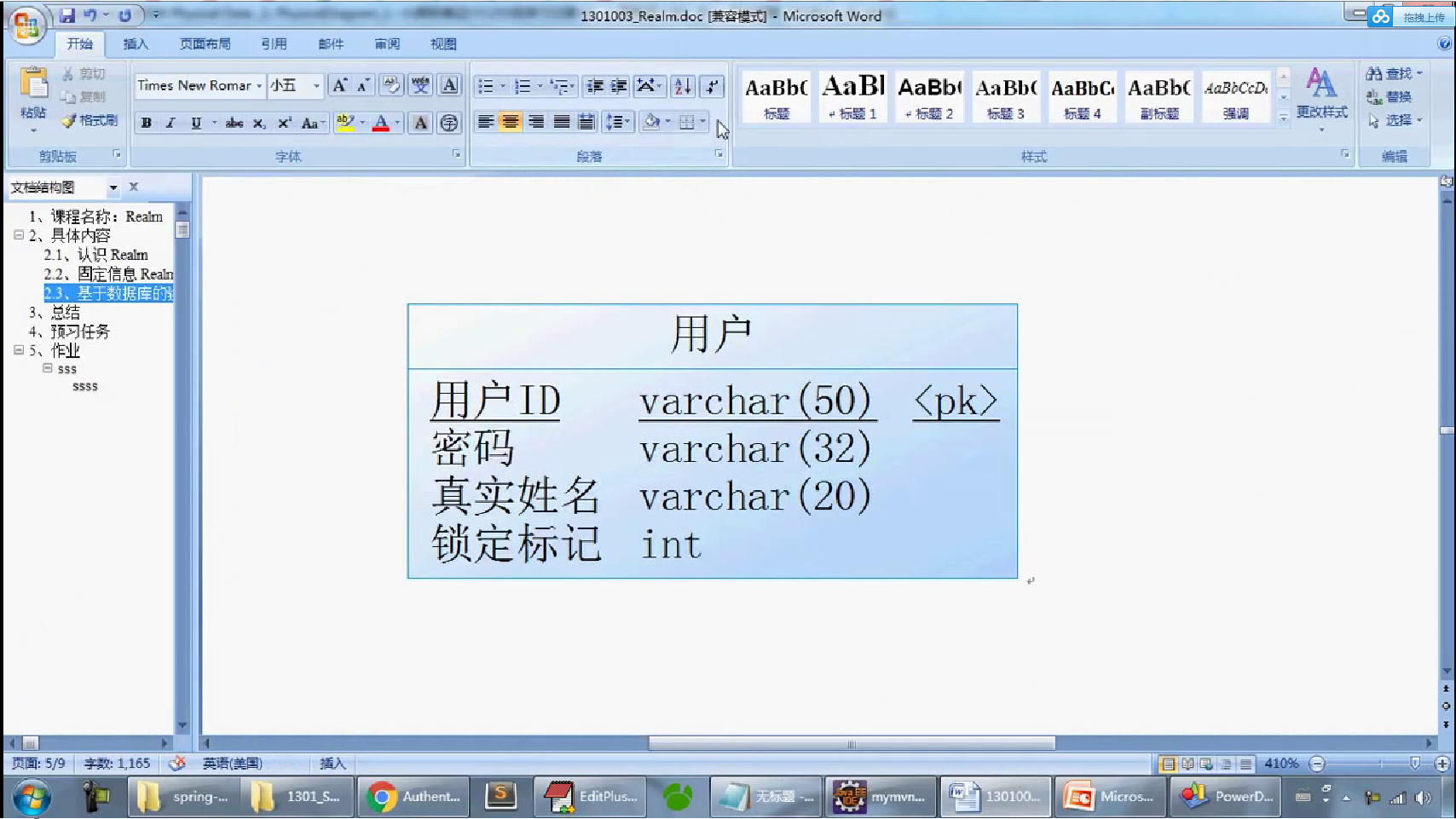
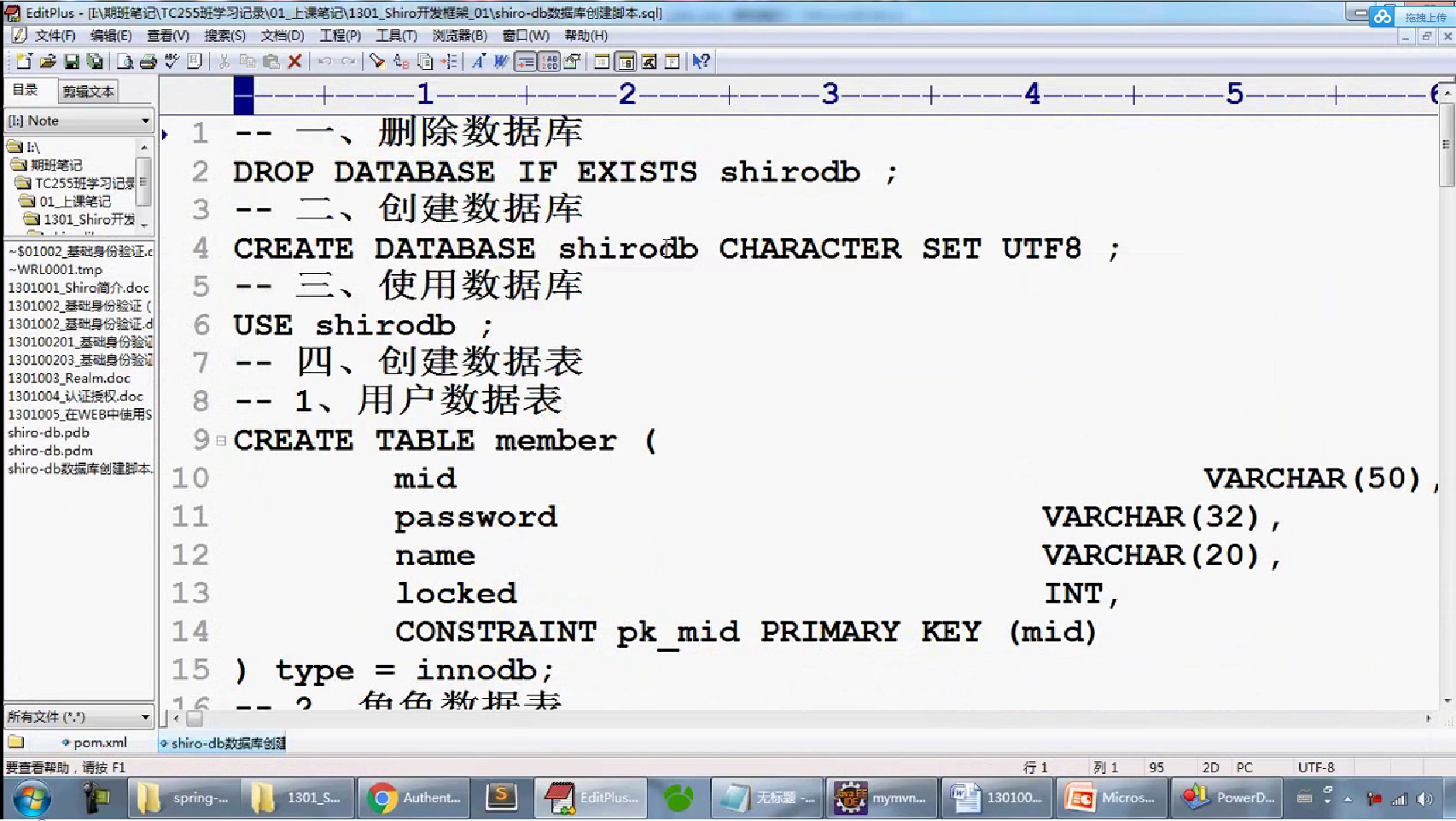
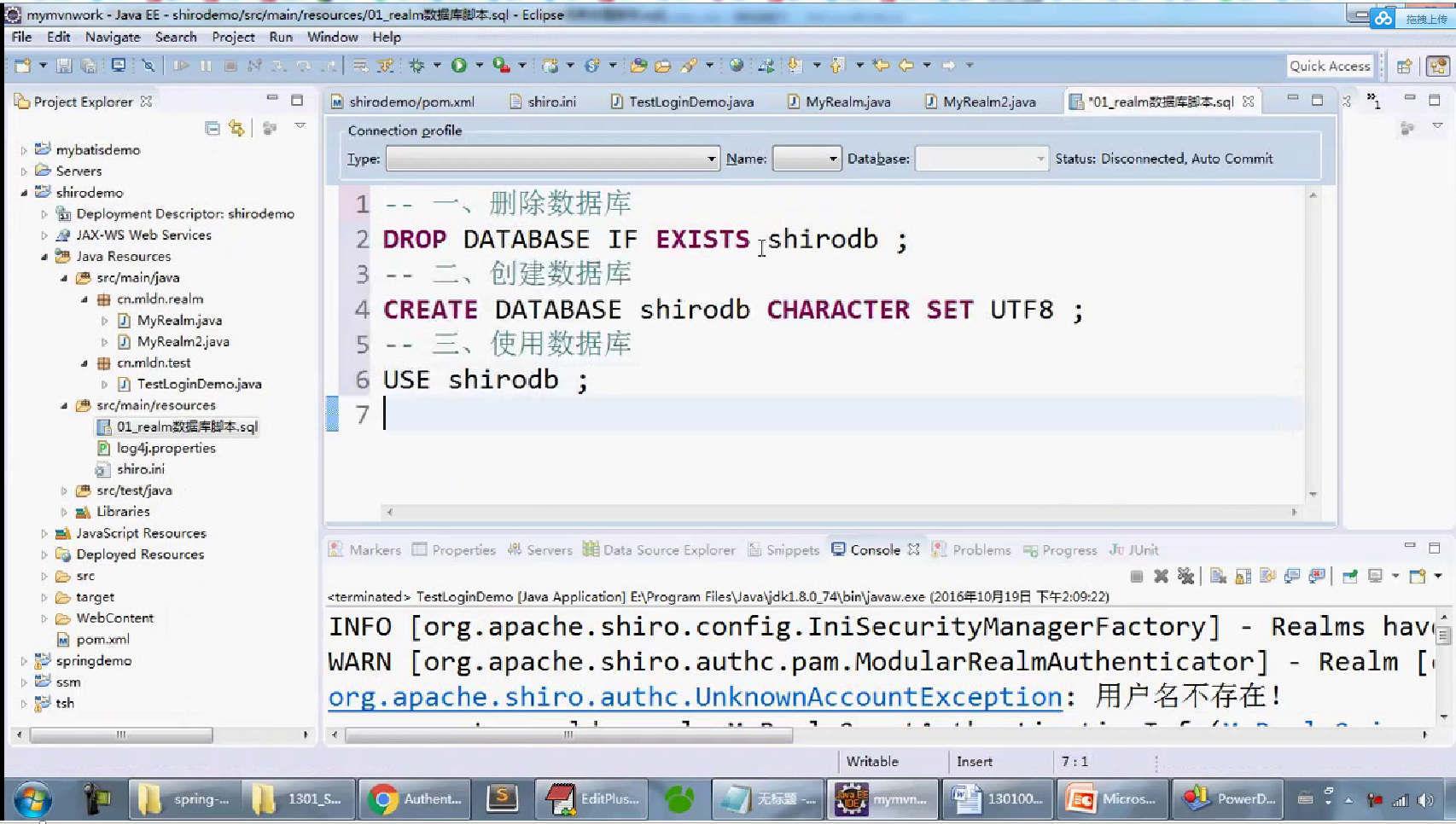
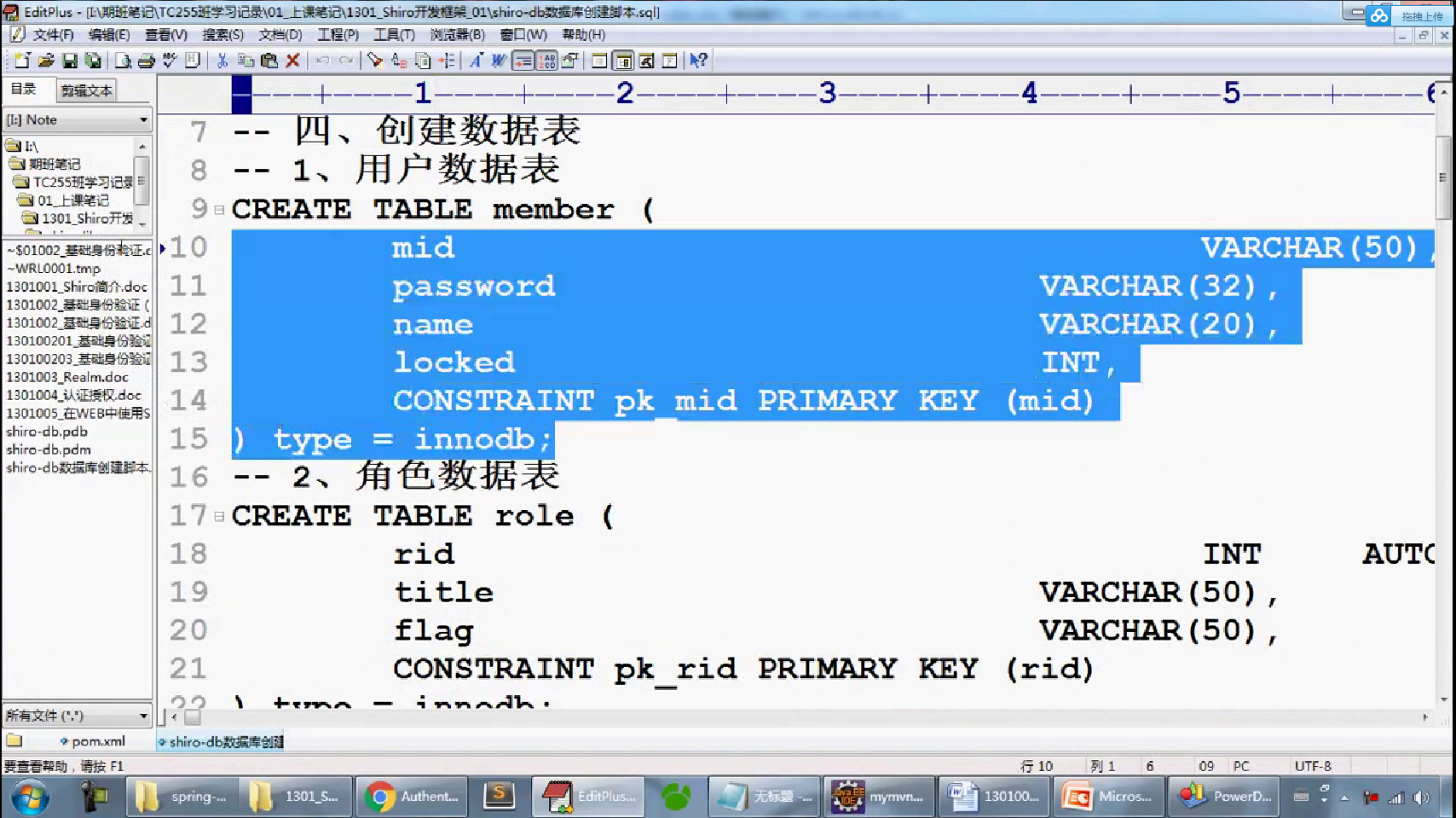
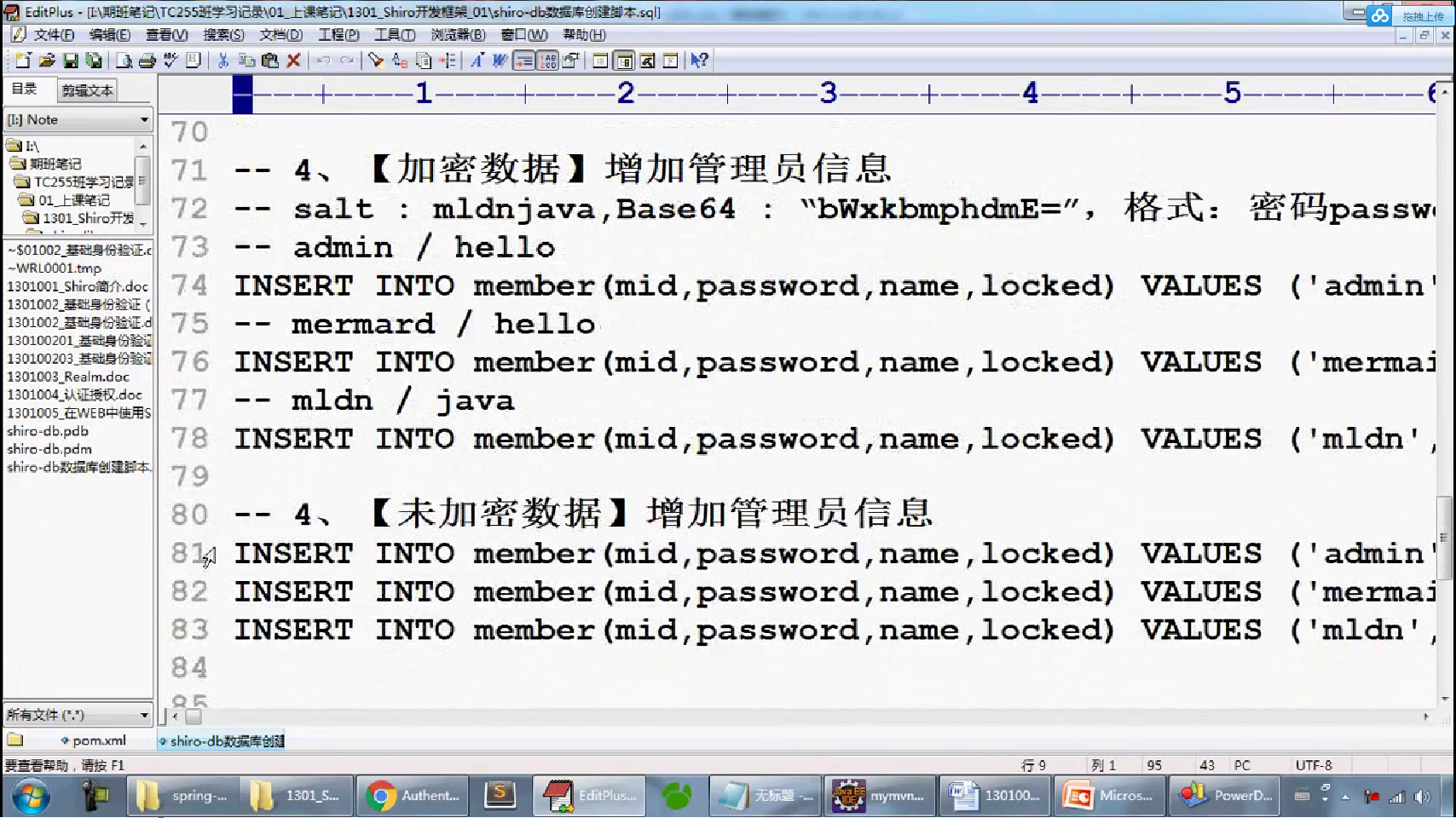
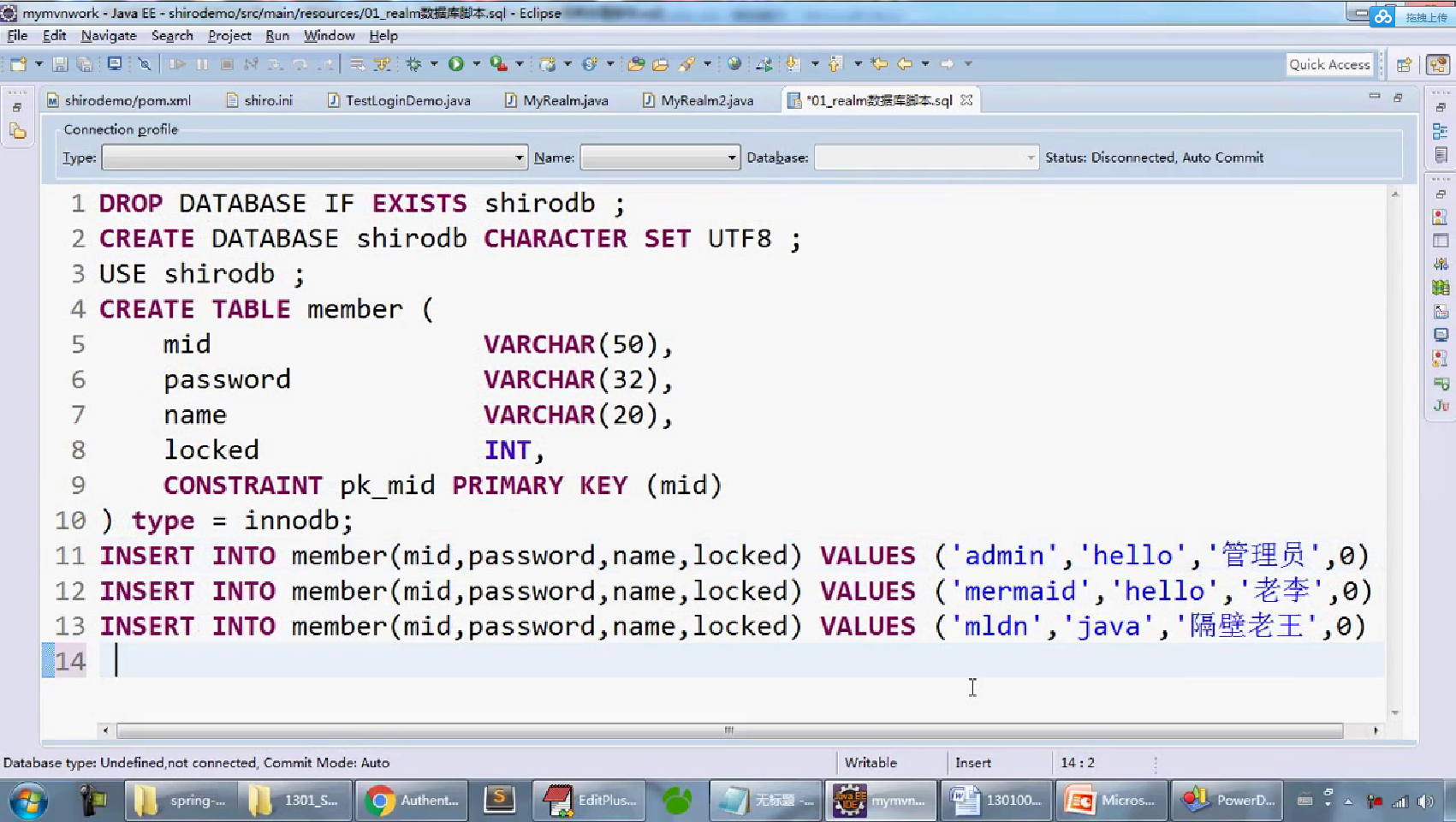
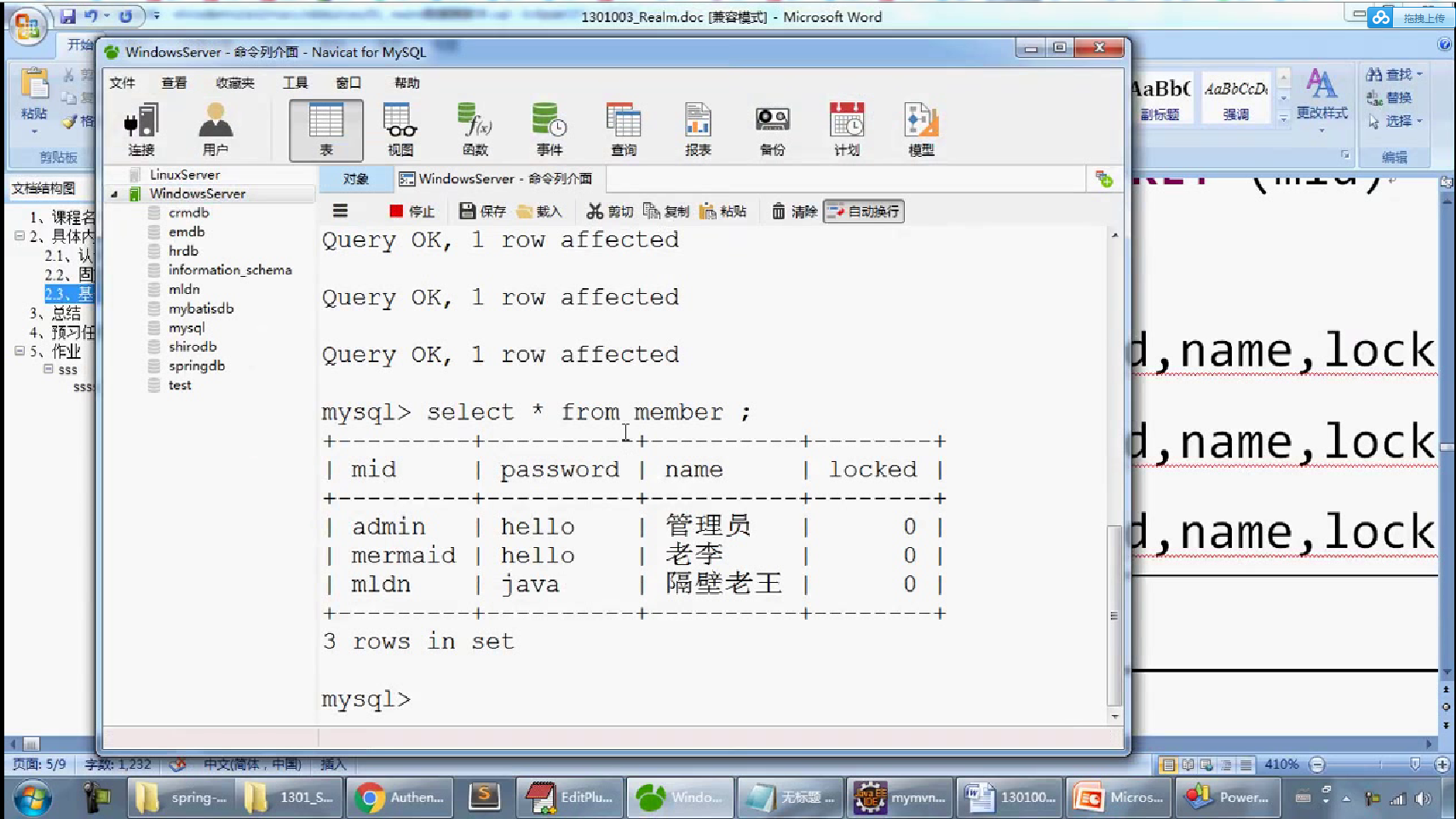
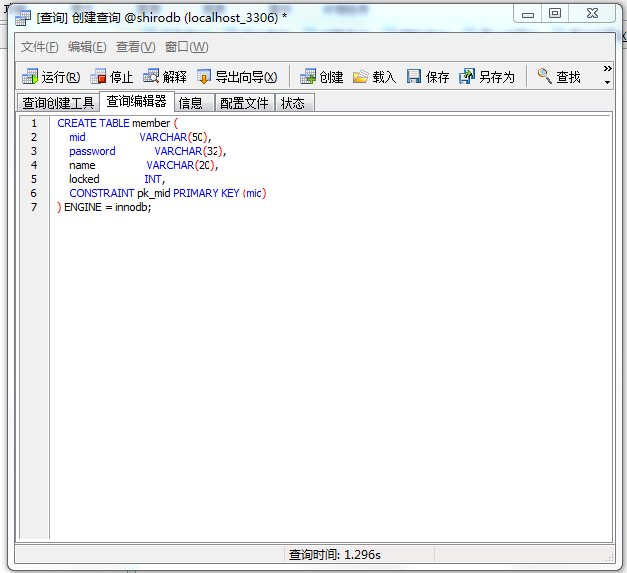
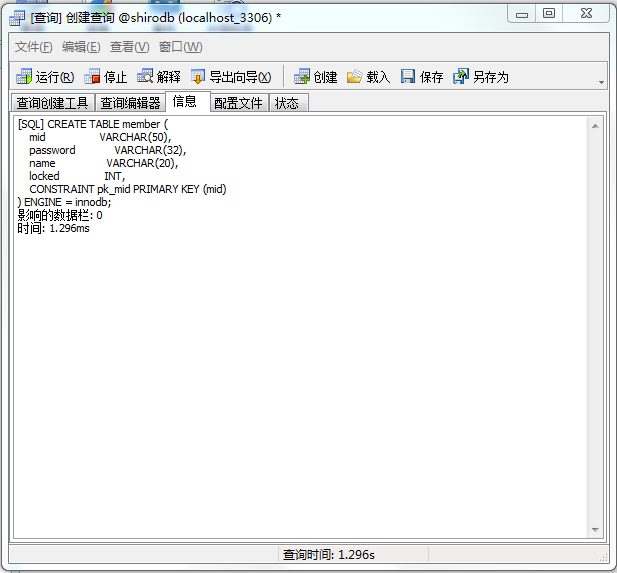
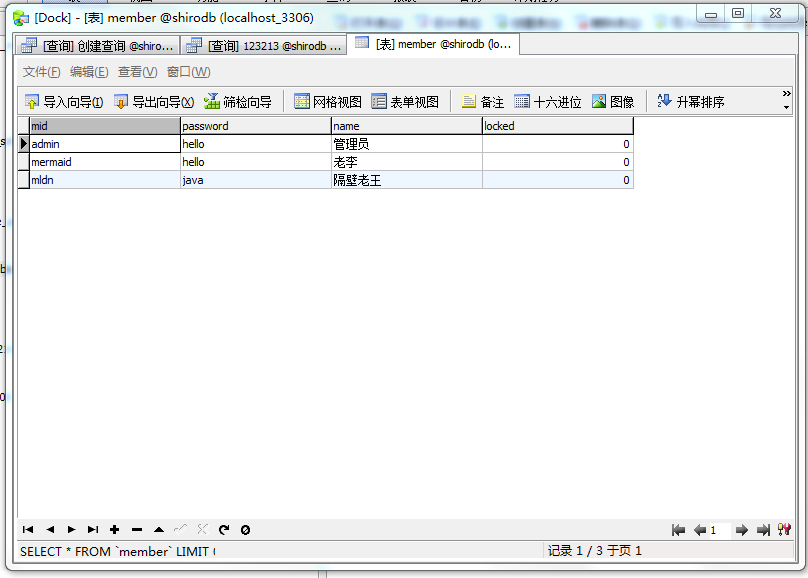
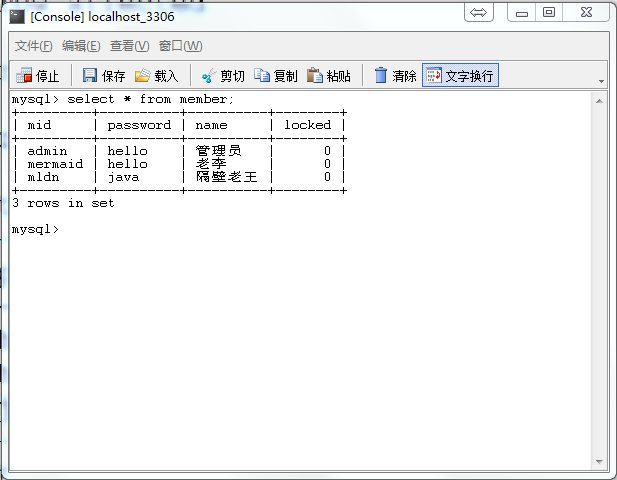
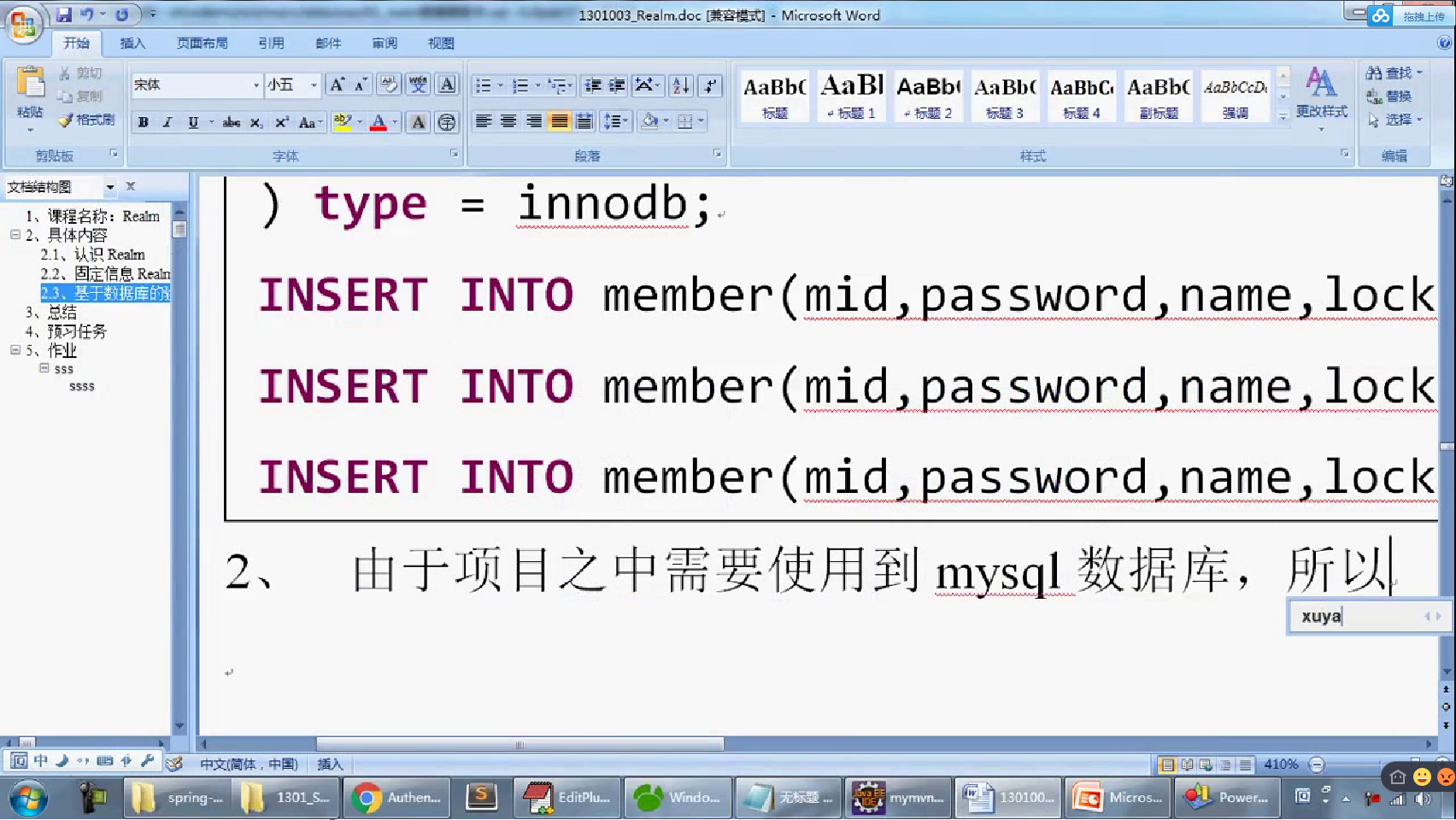
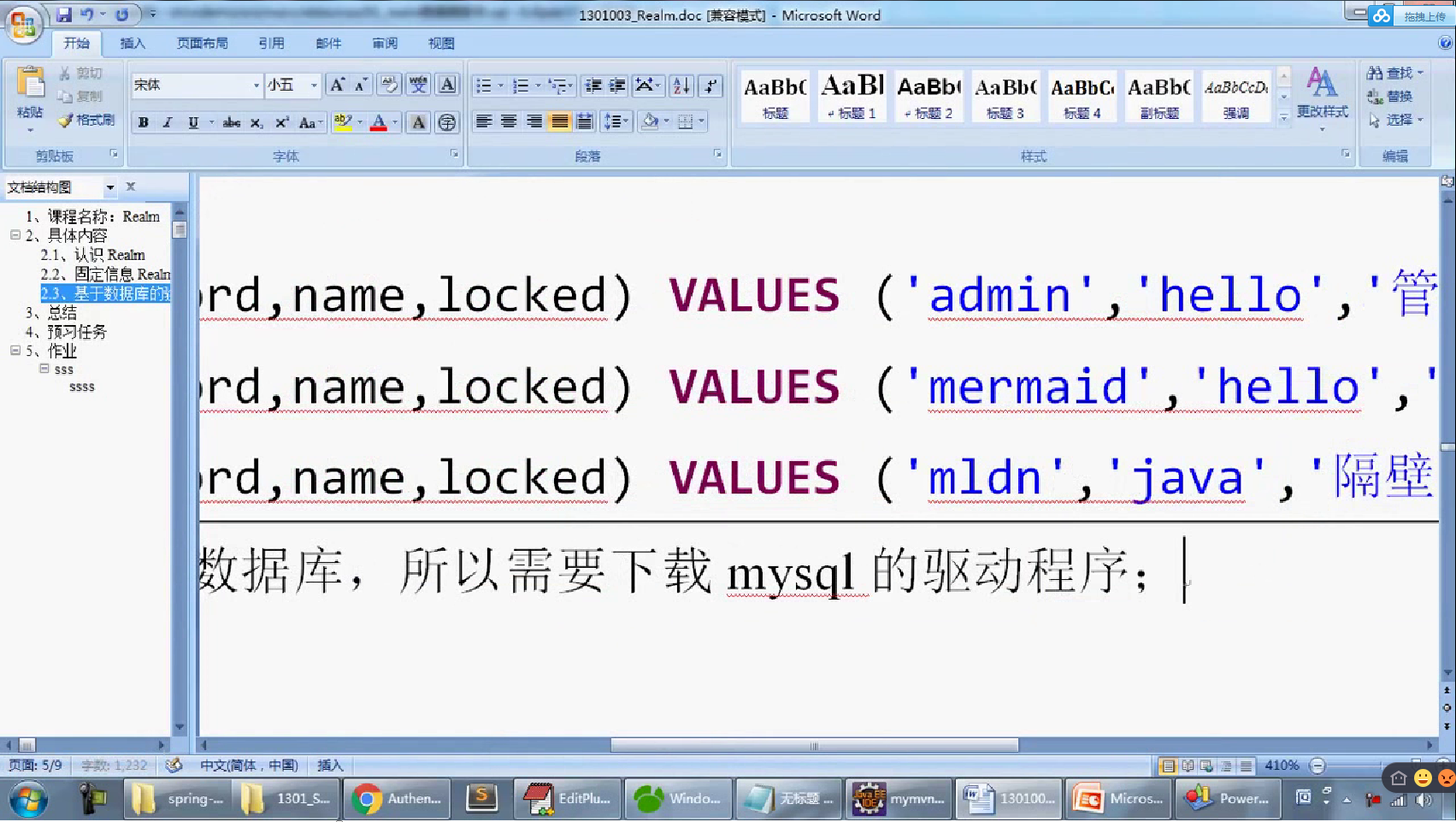
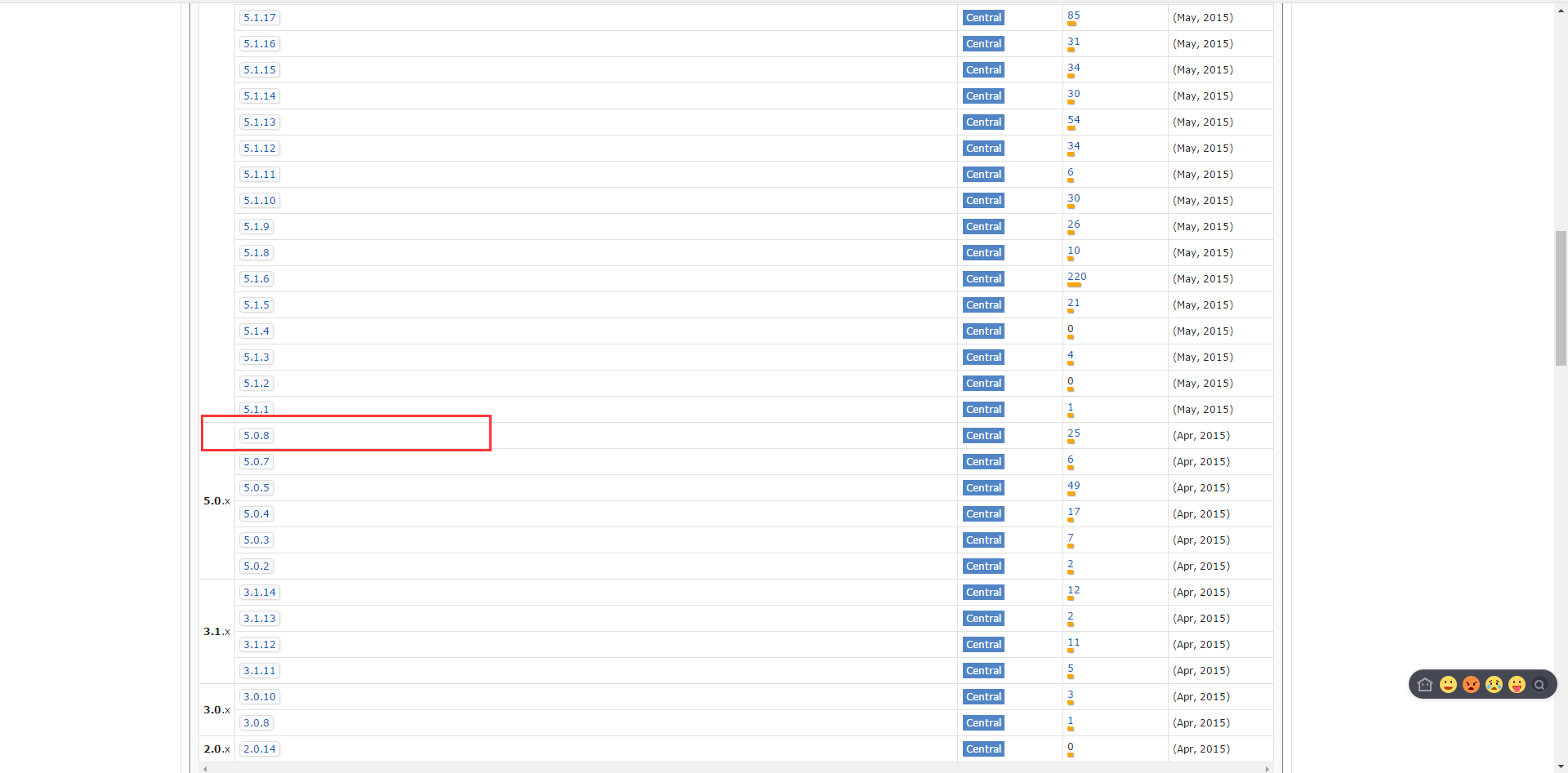
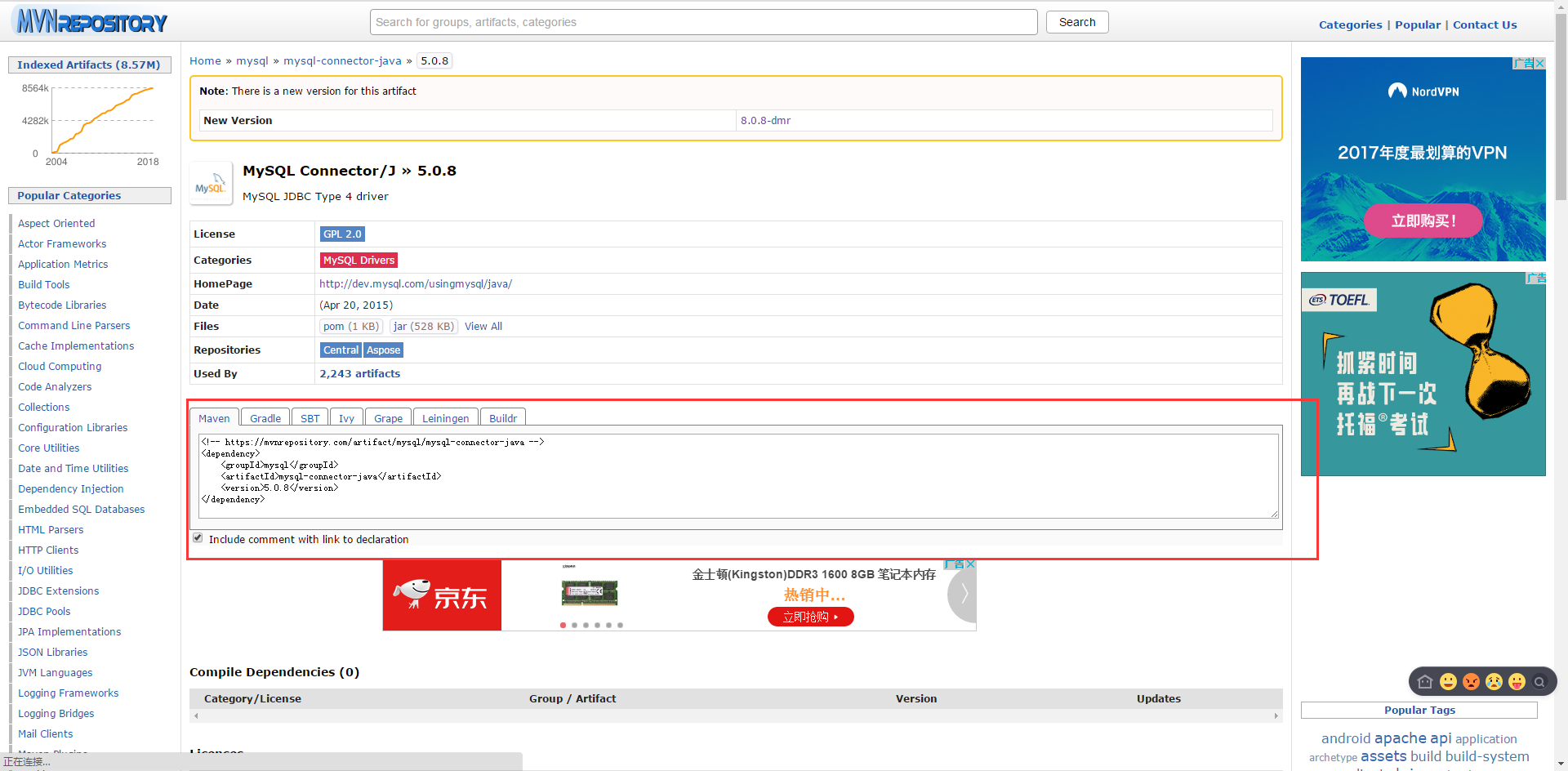

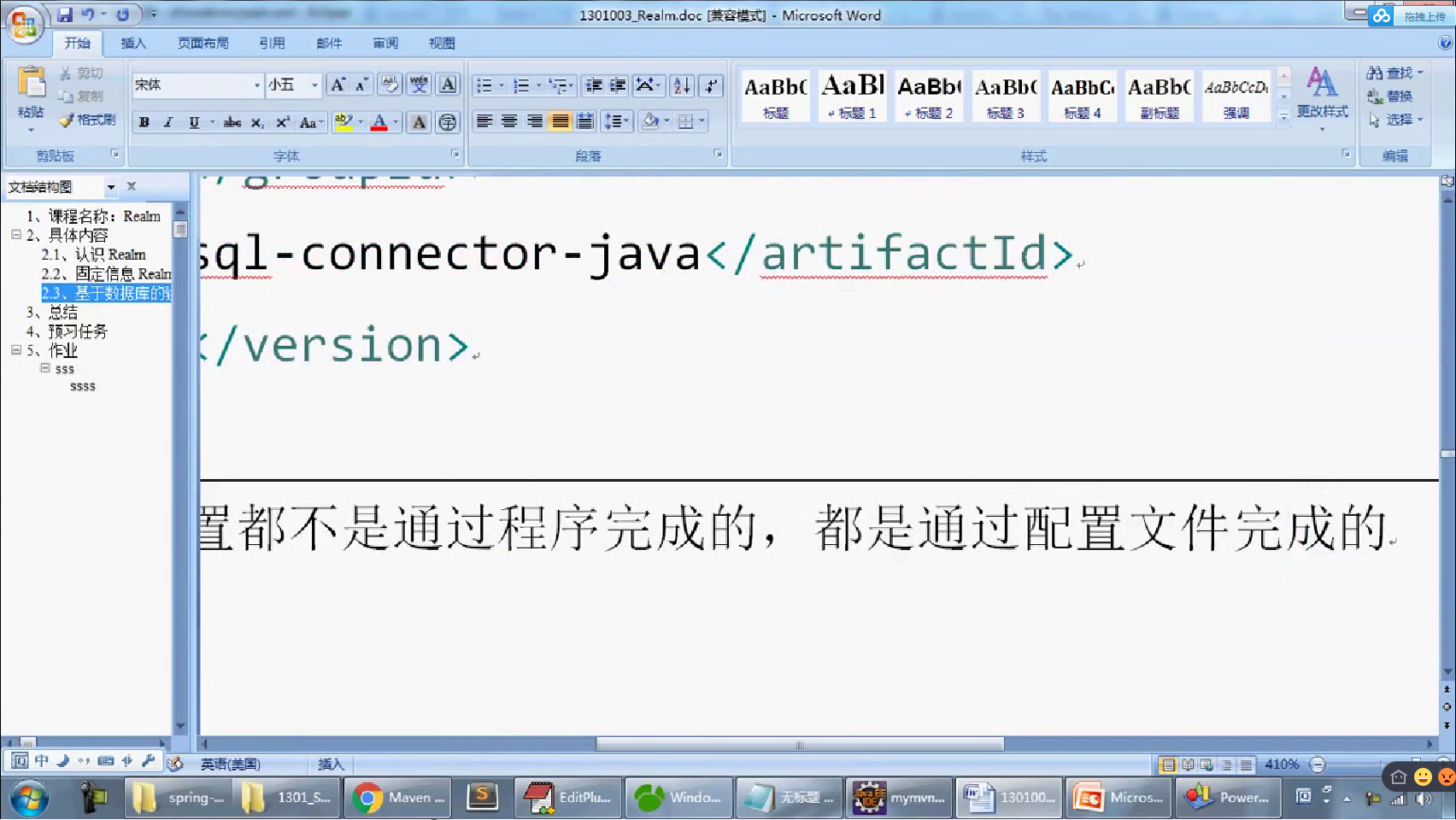
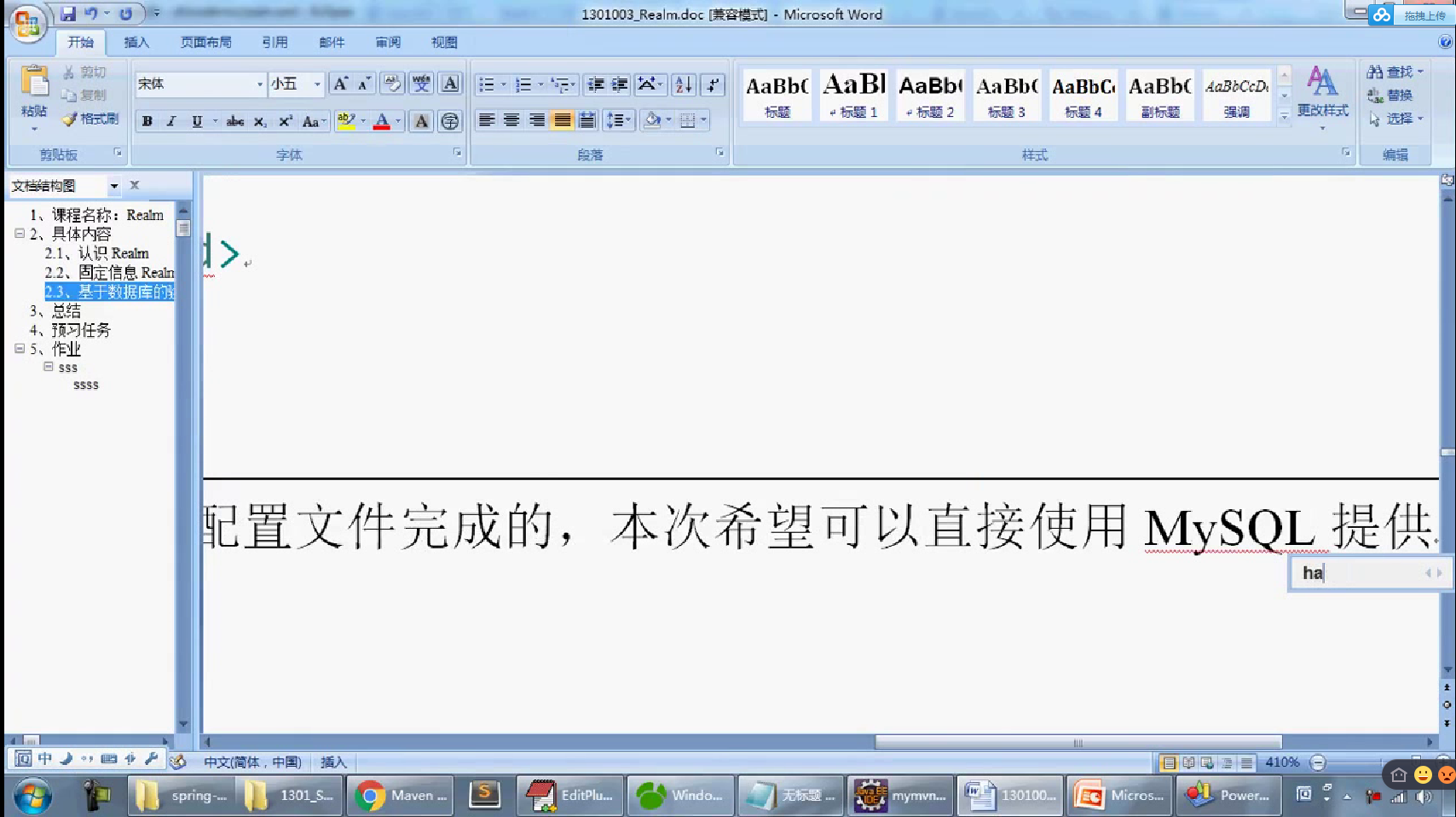
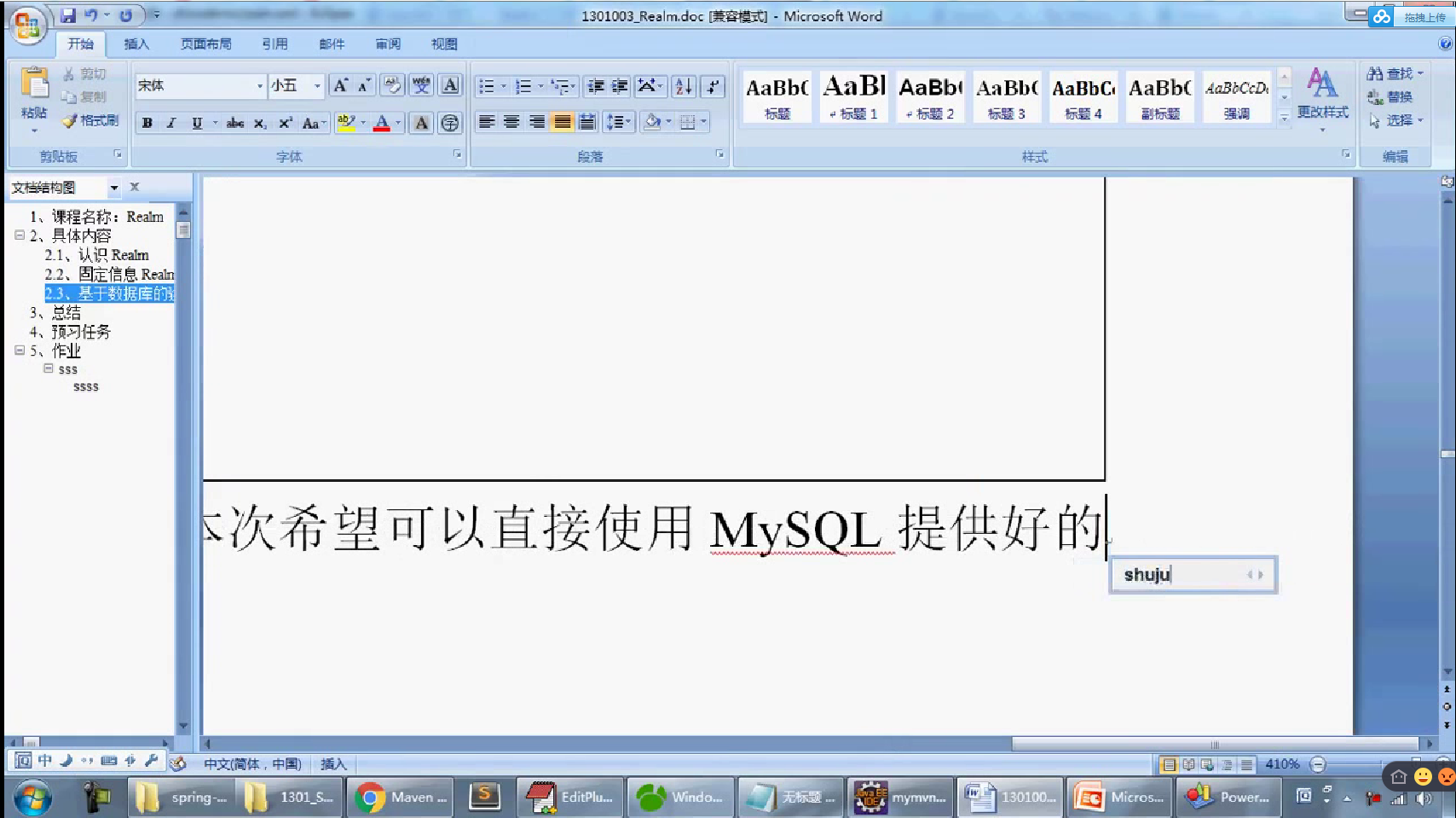
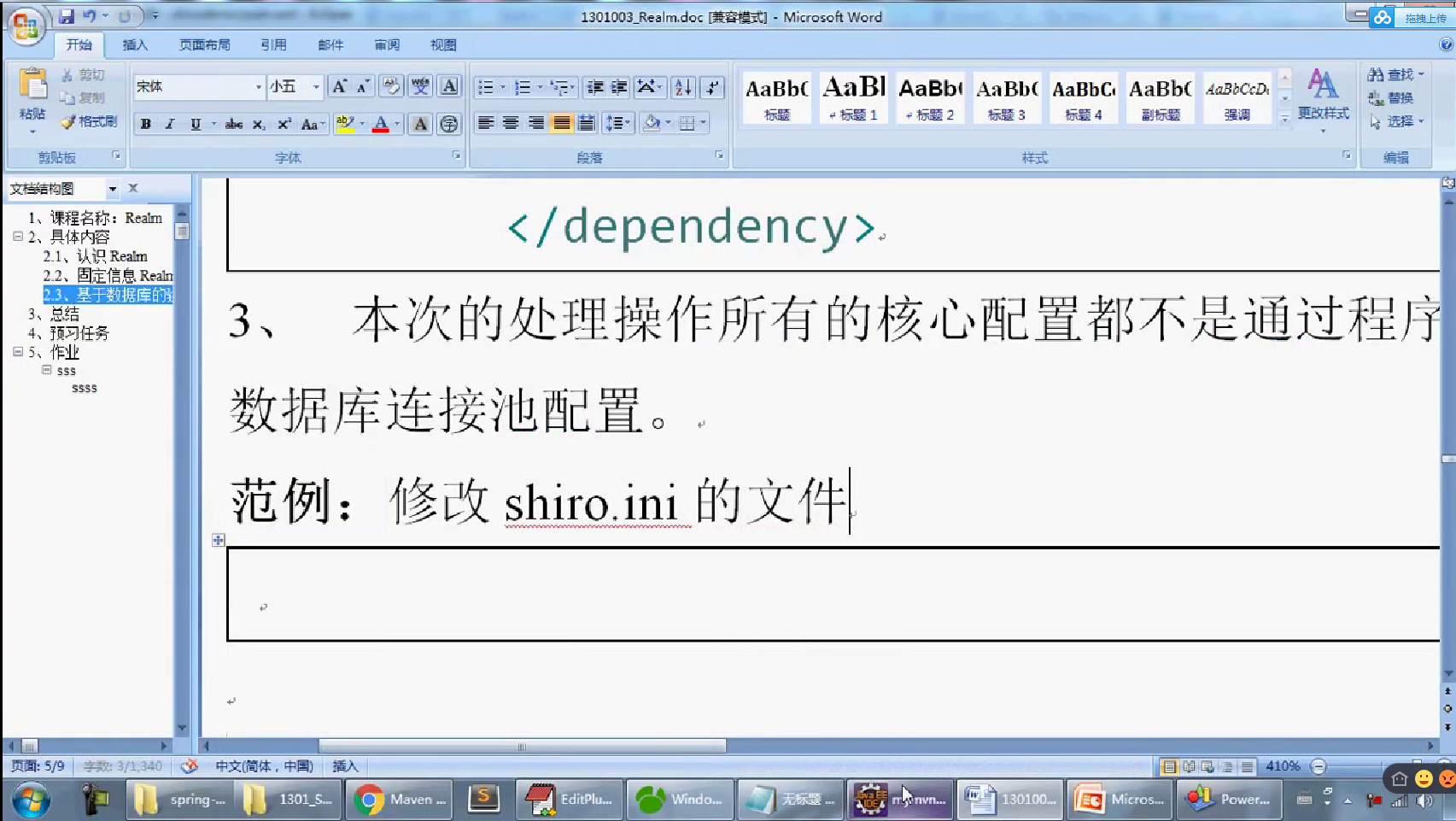
/*-------------------------------------------- | I N S T A N C E V A R I A B L E S | ============================================*/ protected DataSource dataSource; protected String authenticationQuery = DEFAULT_AUTHENTICATION_QUERY; protected String userRolesQuery = DEFAULT_USER_ROLES_QUERY; protected String permissionsQuery = DEFAULT_PERMISSIONS_QUERY; protected boolean permissionsLookupEnabled = false; protected SaltStyle saltStyle = SaltStyle.NO_SALT;
/* * Licensed to the Apache Software Foundation (ASF) under one * or more contributor license agreements. See the NOTICE file * distributed with this work for additional information * regarding copyright ownership. The ASF licenses this file * to you under the Apache License, Version 2.0 (the * "License"); you may not use this file except in compliance * with the License. You may obtain a copy of the License at * * http://www.apache.org/licenses/LICENSE-2.0 * * Unless required by applicable law or agreed to in writing, * software distributed under the License is distributed on an * "AS IS" BASIS, WITHOUT WARRANTIES OR CONDITIONS OF ANY * KIND, either express or implied. See the License for the * specific language governing permissions and limitations * under the License. */ package org.apache.shiro.realm.jdbc; import org.apache.shiro.authc.*; import org.apache.shiro.authz.AuthorizationException; import org.apache.shiro.authz.AuthorizationInfo; import org.apache.shiro.authz.SimpleAuthorizationInfo; import org.apache.shiro.config.ConfigurationException; import org.apache.shiro.realm.AuthorizingRealm; import org.apache.shiro.subject.PrincipalCollection; import org.apache.shiro.util.ByteSource; import org.apache.shiro.util.JdbcUtils; import org.slf4j.Logger; import org.slf4j.LoggerFactory; import javax.sql.DataSource; import java.sql.Connection; import java.sql.PreparedStatement; import java.sql.ResultSet; import java.sql.SQLException; import java.util.Collection; import java.util.LinkedHashSet; import java.util.Set; /** * Realm that allows authentication and authorization via JDBC calls. The default queries suggest a potential schema * for retrieving the user's password for authentication, and querying for a user's roles and permissions. The * default queries can be overridden by setting the query properties of the realm. * <p/> * If the default implementation * of authentication and authorization cannot handle your schema, this class can be subclassed and the * appropriate methods overridden. (usually {@link #doGetAuthenticationInfo(org.apache.shiro.authc.AuthenticationToken)}, * {@link #getRoleNamesForUser(java.sql.Connection,String)}, and/or {@link #getPermissions(java.sql.Connection,String,java.util.Collection)} * <p/> * This realm supports caching by extending from {@link org.apache.shiro.realm.AuthorizingRealm}. * * @since 0.2 */ public class JdbcRealm extends AuthorizingRealm { //TODO - complete JavaDoc /*-------------------------------------------- | C O N S T A N T S | ============================================*/ /** * The default query used to retrieve account data for the user. */ protected static final String DEFAULT_AUTHENTICATION_QUERY = "select password from users where username = ?"; /** * The default query used to retrieve account data for the user when {@link #saltStyle} is COLUMN. */ protected static final String DEFAULT_SALTED_AUTHENTICATION_QUERY = "select password, password_salt from users where username = ?"; /** * The default query used to retrieve the roles that apply to a user. */ protected static final String DEFAULT_USER_ROLES_QUERY = "select role_name from user_roles where username = ?"; /** * The default query used to retrieve permissions that apply to a particular role. */ protected static final String DEFAULT_PERMISSIONS_QUERY = "select permission from roles_permissions where role_name = ?"; private static final Logger log = LoggerFactory.getLogger(JdbcRealm.class); /** * Password hash salt configuration. <ul> * <li>NO_SALT - password hashes are not salted.</li> * <li>CRYPT - password hashes are stored in unix crypt format.</li> * <li>COLUMN - salt is in a separate column in the database.</li> * <li>EXTERNAL - salt is not stored in the database. {@link #getSaltForUser(String)} will be called * to get the salt</li></ul> */ public enum SaltStyle {NO_SALT, CRYPT, COLUMN, EXTERNAL}; /*-------------------------------------------- | I N S T A N C E V A R I A B L E S | ============================================*/ protected DataSource dataSource; protected String authenticationQuery = DEFAULT_AUTHENTICATION_QUERY; protected String userRolesQuery = DEFAULT_USER_ROLES_QUERY; protected String permissionsQuery = DEFAULT_PERMISSIONS_QUERY; protected boolean permissionsLookupEnabled = false; protected SaltStyle saltStyle = SaltStyle.NO_SALT; /*-------------------------------------------- | C O N S T R U C T O R S | ============================================*/ /*-------------------------------------------- | A C C E S S O R S / M O D I F I E R S | ============================================*/ /** * Sets the datasource that should be used to retrieve connections used by this realm. * * @param dataSource the SQL data source. */ public void setDataSource(DataSource dataSource) { this.dataSource = dataSource; } /** * Overrides the default query used to retrieve a user's password during authentication. When using the default * implementation, this query must take the user's username as a single parameter and return a single result * with the user's password as the first column. If you require a solution that does not match this query * structure, you can override {@link #doGetAuthenticationInfo(org.apache.shiro.authc.AuthenticationToken)} or * just {@link #getPasswordForUser(java.sql.Connection,String)} * * @param authenticationQuery the query to use for authentication. * @see #DEFAULT_AUTHENTICATION_QUERY */ public void setAuthenticationQuery(String authenticationQuery) { this.authenticationQuery = authenticationQuery; } /** * Overrides the default query used to retrieve a user's roles during authorization. When using the default * implementation, this query must take the user's username as a single parameter and return a row * per role with a single column containing the role name. If you require a solution that does not match this query * structure, you can override {@link #doGetAuthorizationInfo(PrincipalCollection)} or just * {@link #getRoleNamesForUser(java.sql.Connection,String)} * * @param userRolesQuery the query to use for retrieving a user's roles. * @see #DEFAULT_USER_ROLES_QUERY */ public void setUserRolesQuery(String userRolesQuery) { this.userRolesQuery = userRolesQuery; } /** * Overrides the default query used to retrieve a user's permissions during authorization. When using the default * implementation, this query must take a role name as the single parameter and return a row * per permission with three columns containing the fully qualified name of the permission class, the permission * name, and the permission actions (in that order). If you require a solution that does not match this query * structure, you can override {@link #doGetAuthorizationInfo(org.apache.shiro.subject.PrincipalCollection)} or just * {@link #getPermissions(java.sql.Connection,String,java.util.Collection)}</p> * <p/> * <b>Permissions are only retrieved if you set {@link #permissionsLookupEnabled} to true. Otherwise, * this query is ignored.</b> * * @param permissionsQuery the query to use for retrieving permissions for a role. * @see #DEFAULT_PERMISSIONS_QUERY * @see #setPermissionsLookupEnabled(boolean) */ public void setPermissionsQuery(String permissionsQuery) { this.permissionsQuery = permissionsQuery; } /** * Enables lookup of permissions during authorization. The default is "false" - meaning that only roles * are associated with a user. Set this to true in order to lookup roles <b>and</b> permissions. * * @param permissionsLookupEnabled true if permissions should be looked up during authorization, or false if only * roles should be looked up. */ public void setPermissionsLookupEnabled(boolean permissionsLookupEnabled) { this.permissionsLookupEnabled = permissionsLookupEnabled; } /** * Sets the salt style. See {@link #saltStyle}. * * @param saltStyle new SaltStyle to set. */ public void setSaltStyle(SaltStyle saltStyle) { this.saltStyle = saltStyle; if (saltStyle == SaltStyle.COLUMN && authenticationQuery.equals(DEFAULT_AUTHENTICATION_QUERY)) { authenticationQuery = DEFAULT_SALTED_AUTHENTICATION_QUERY; } } /*-------------------------------------------- | M E T H O D S | ============================================*/ protected AuthenticationInfo doGetAuthenticationInfo(AuthenticationToken token) throws AuthenticationException { UsernamePasswordToken upToken = (UsernamePasswordToken) token; String username = upToken.getUsername(); // Null username is invalid if (username == null) { throw new AccountException("Null usernames are not allowed by this realm."); } Connection conn = null; SimpleAuthenticationInfo info = null; try { conn = dataSource.getConnection(); String password = null; String salt = null; switch (saltStyle) { case NO_SALT: password = getPasswordForUser(conn, username)[0]; break; case CRYPT: // TODO: separate password and hash from getPasswordForUser[0] throw new ConfigurationException("Not implemented yet"); //break; case COLUMN: String[] queryResults = getPasswordForUser(conn, username); password = queryResults[0]; salt = queryResults[1]; break; case EXTERNAL: password = getPasswordForUser(conn, username)[0]; salt = getSaltForUser(username); } if (password == null) { throw new UnknownAccountException("No account found for user [" + username + "]"); } info = new SimpleAuthenticationInfo(username, password.toCharArray(), getName()); if (salt != null) { info.setCredentialsSalt(ByteSource.Util.bytes(salt)); } } catch (SQLException e) { final String message = "There was a SQL error while authenticating user [" + username + "]"; if (log.isErrorEnabled()) { log.error(message, e); } // Rethrow any SQL errors as an authentication exception throw new AuthenticationException(message, e); } finally { JdbcUtils.closeConnection(conn); } return info; } private String[] getPasswordForUser(Connection conn, String username) throws SQLException { String[] result; boolean returningSeparatedSalt = false; switch (saltStyle) { case NO_SALT: case CRYPT: case EXTERNAL: result = new String[1]; break; default: result = new String[2]; returningSeparatedSalt = true; } PreparedStatement ps = null; ResultSet rs = null; try { ps = conn.prepareStatement(authenticationQuery); ps.setString(1, username); // Execute query rs = ps.executeQuery(); // Loop over results - although we are only expecting one result, since usernames should be unique boolean foundResult = false; while (rs.next()) { // Check to ensure only one row is processed if (foundResult) { throw new AuthenticationException("More than one user row found for user [" + username + "]. Usernames must be unique."); } result[0] = rs.getString(1); if (returningSeparatedSalt) { result[1] = rs.getString(2); } foundResult = true; } } finally { JdbcUtils.closeResultSet(rs); JdbcUtils.closeStatement(ps); } return result; } /** * This implementation of the interface expects the principals collection to return a String username keyed off of * this realm's {@link #getName() name} * * @see #getAuthorizationInfo(org.apache.shiro.subject.PrincipalCollection) */ @Override protected AuthorizationInfo doGetAuthorizationInfo(PrincipalCollection principals) { //null usernames are invalid if (principals == null) { throw new AuthorizationException("PrincipalCollection method argument cannot be null."); } String username = (String) getAvailablePrincipal(principals); Connection conn = null; Set<String> roleNames = null; Set<String> permissions = null; try { conn = dataSource.getConnection(); // Retrieve roles and permissions from database roleNames = getRoleNamesForUser(conn, username); if (permissionsLookupEnabled) { permissions = getPermissions(conn, username, roleNames); } } catch (SQLException e) { final String message = "There was a SQL error while authorizing user [" + username + "]"; if (log.isErrorEnabled()) { log.error(message, e); } // Rethrow any SQL errors as an authorization exception throw new AuthorizationException(message, e); } finally { JdbcUtils.closeConnection(conn); } SimpleAuthorizationInfo info = new SimpleAuthorizationInfo(roleNames); info.setStringPermissions(permissions); return info; } protected Set<String> getRoleNamesForUser(Connection conn, String username) throws SQLException { PreparedStatement ps = null; ResultSet rs = null; Set<String> roleNames = new LinkedHashSet<String>(); try { ps = conn.prepareStatement(userRolesQuery); ps.setString(1, username); // Execute query rs = ps.executeQuery(); // Loop over results and add each returned role to a set while (rs.next()) { String roleName = rs.getString(1); // Add the role to the list of names if it isn't null if (roleName != null) { roleNames.add(roleName); } else { if (log.isWarnEnabled()) { log.warn("Null role name found while retrieving role names for user [" + username + "]"); } } } } finally { JdbcUtils.closeResultSet(rs); JdbcUtils.closeStatement(ps); } return roleNames; } protected Set<String> getPermissions(Connection conn, String username, Collection<String> roleNames) throws SQLException { PreparedStatement ps = null; Set<String> permissions = new LinkedHashSet<String>(); try { ps = conn.prepareStatement(permissionsQuery); for (String roleName : roleNames) { ps.setString(1, roleName); ResultSet rs = null; try { // Execute query rs = ps.executeQuery(); // Loop over results and add each returned role to a set while (rs.next()) { String permissionString = rs.getString(1); // Add the permission to the set of permissions permissions.add(permissionString); } } finally { JdbcUtils.closeResultSet(rs); } } } finally { JdbcUtils.closeStatement(ps); } return permissions; } protected String getSaltForUser(String username) { return username; } }
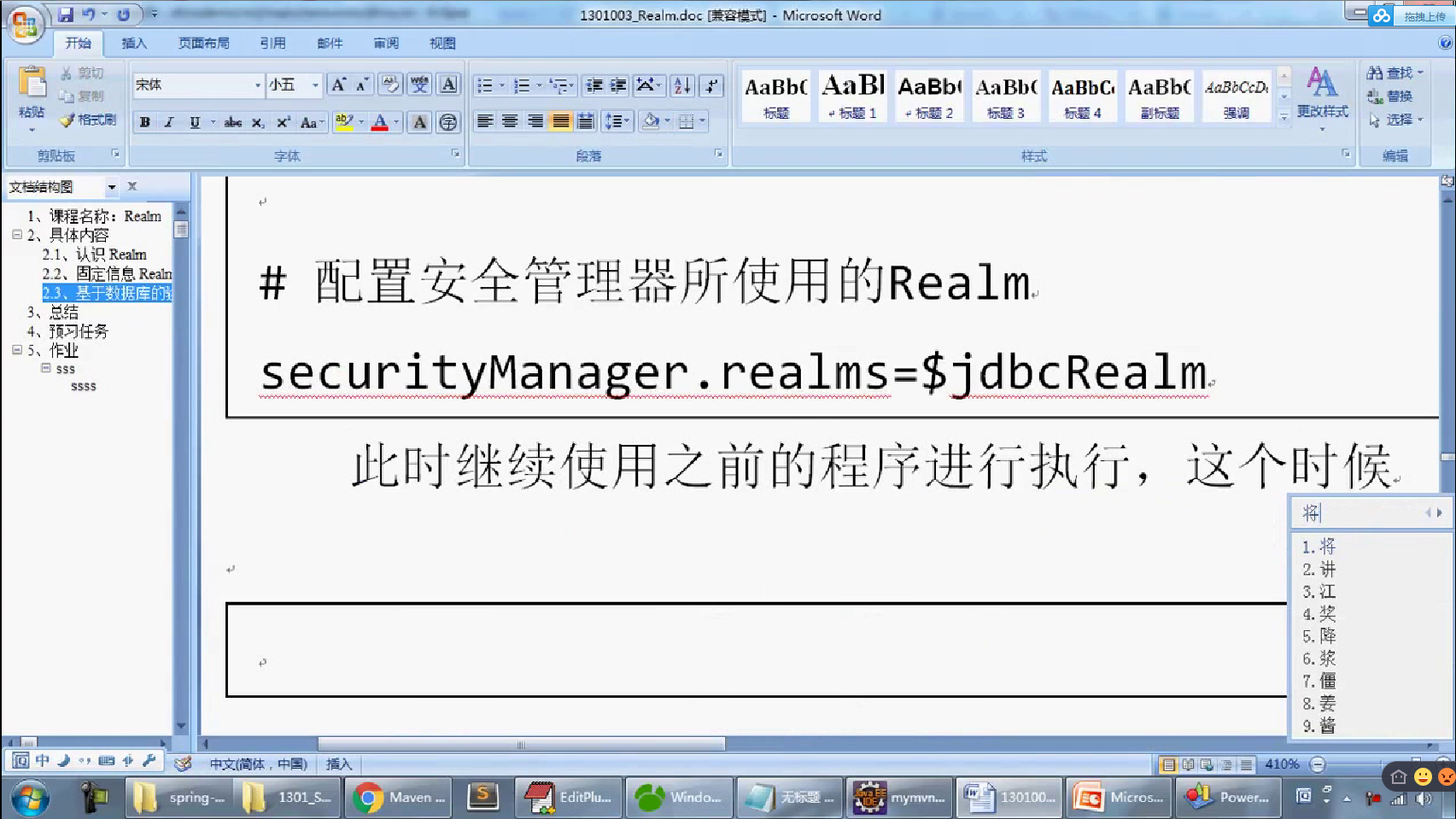
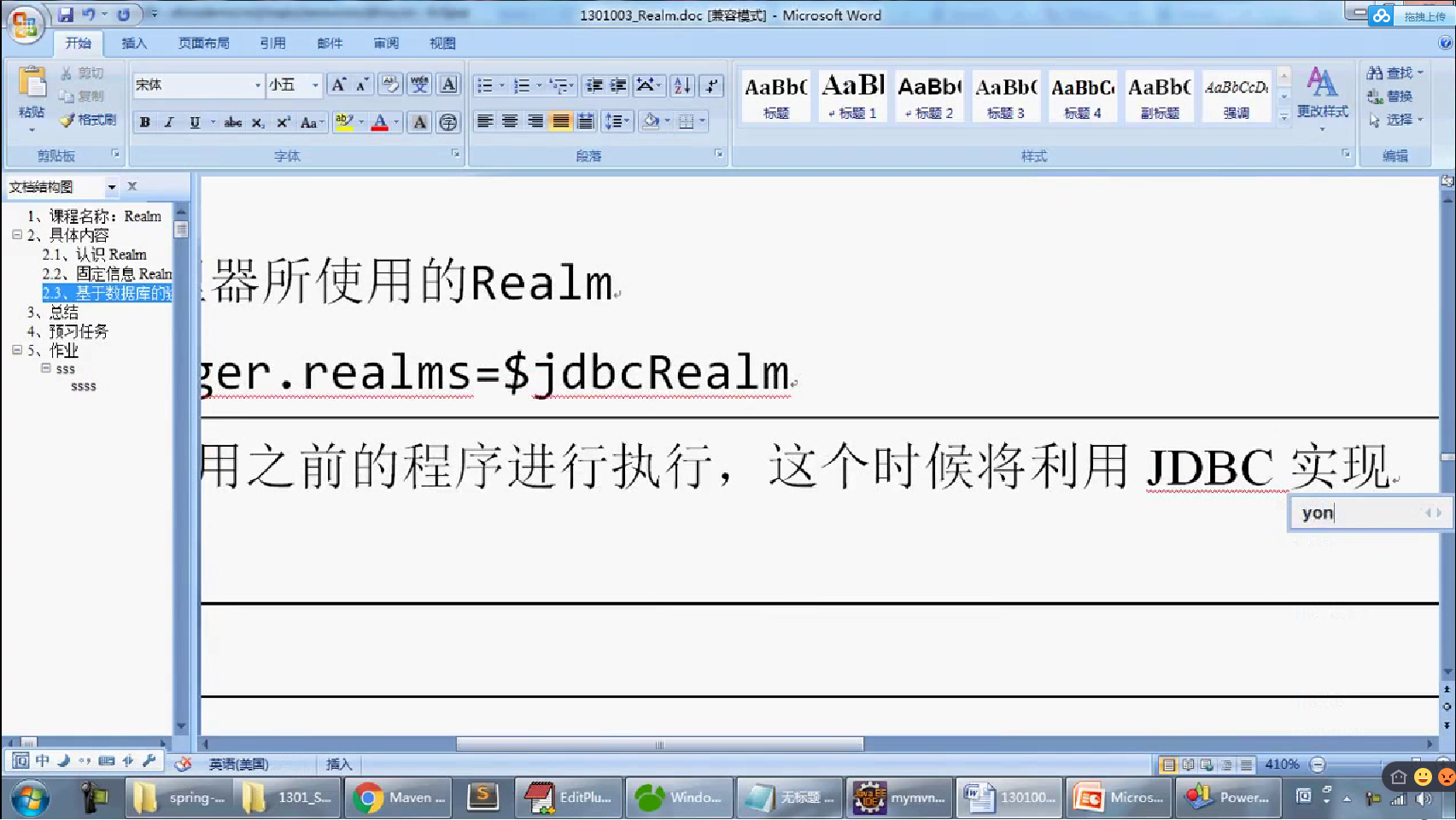
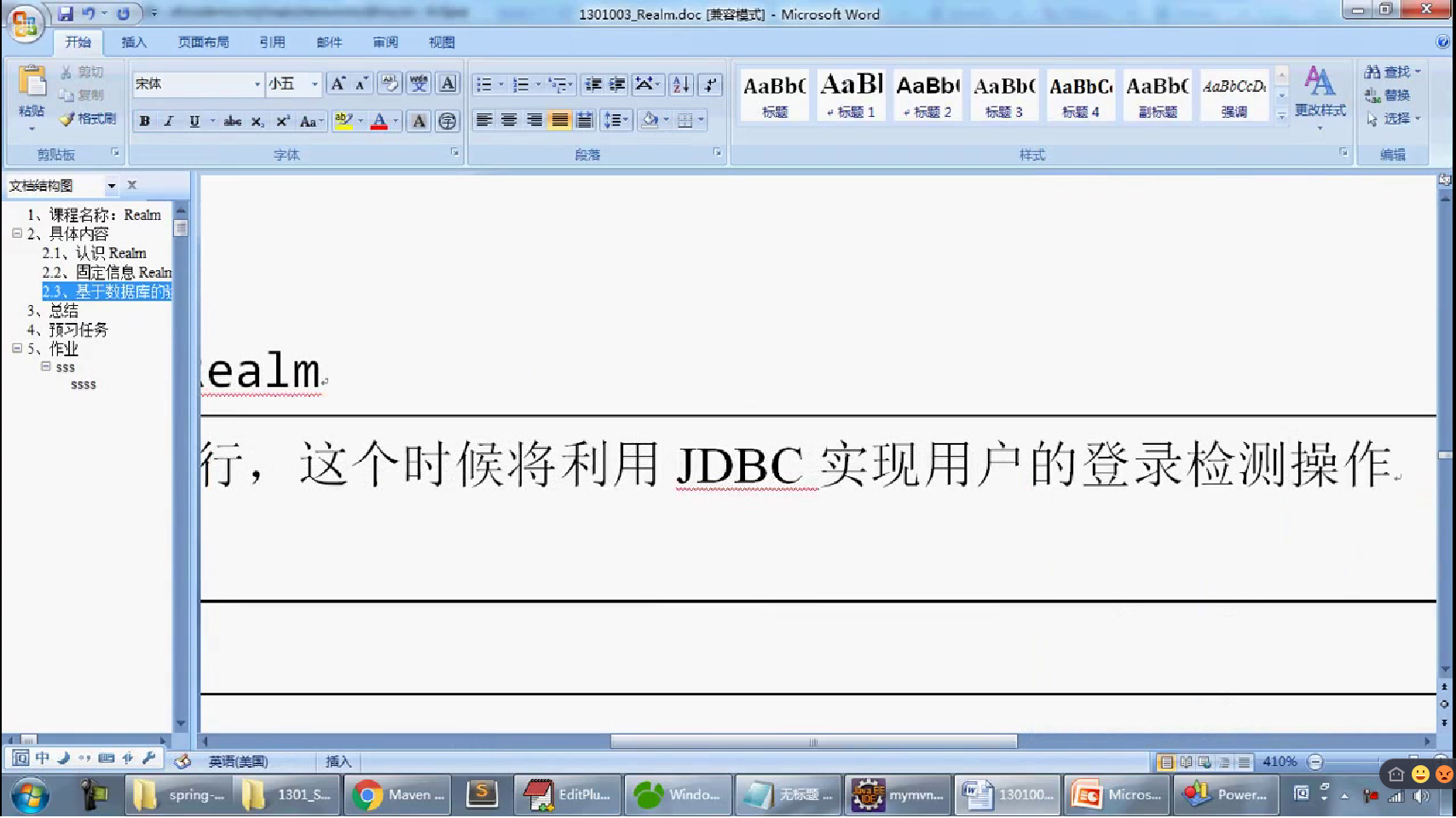
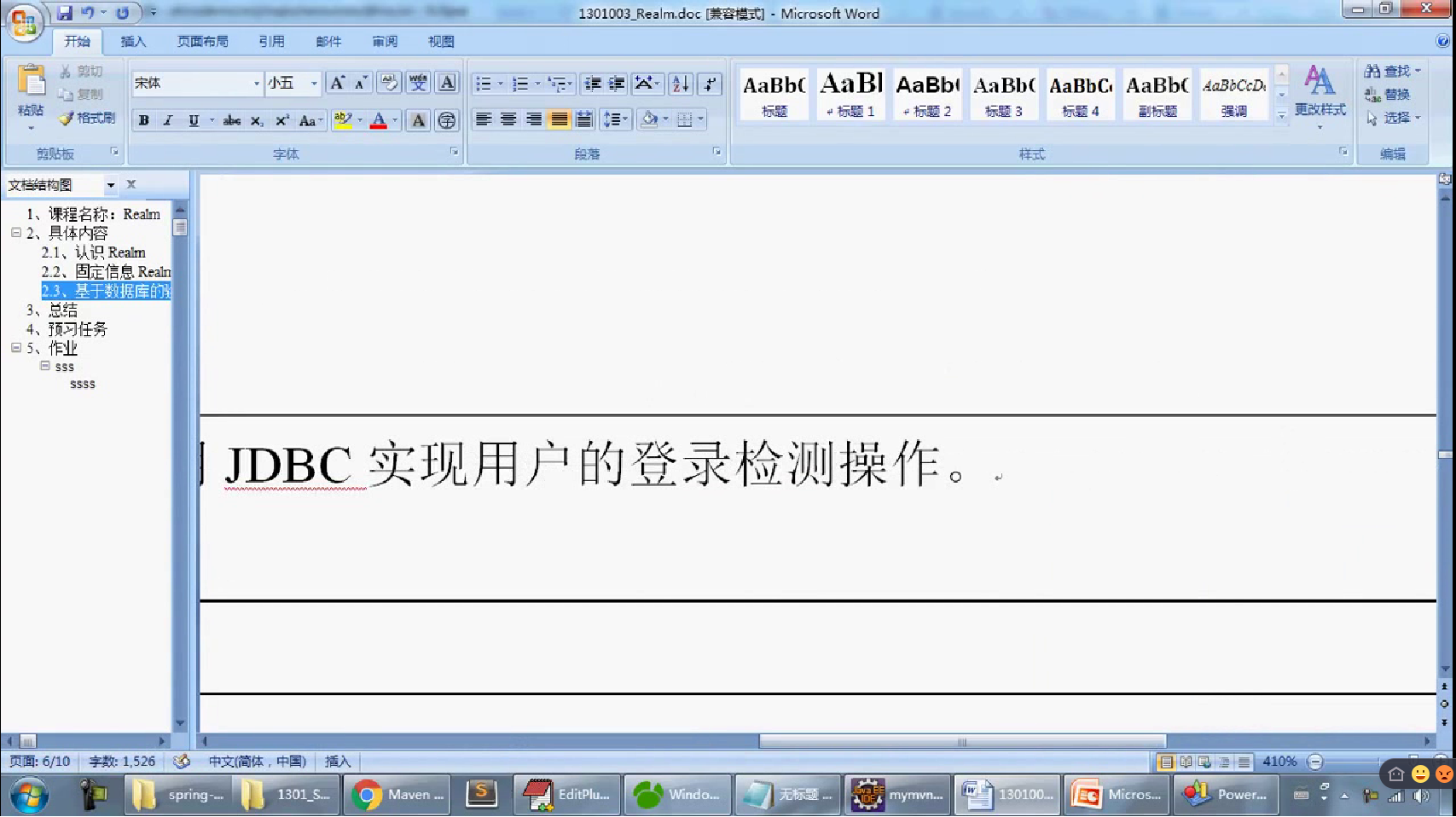
[main] # 定义本次MySQL连接要使用的数据源处理类 dataSource=com.mysql.jdbc.jdbc2.optional.MysqlDataSource # 定义数据库的连接主机名称 dataSource.serverName=127.0.0.1 # 定义要使用的数据库的名字 dataSource.databaseName=shirodb # 定义数据库的连接账户 dataSource.user=root # 定义数据库的连接的密码 dataSource.password= # 定义本次要基于JDBC实现的Realm的认证的配置类; jdbcRealm=org.apache.shiro.realm.jdbc.JdbcRealm # 配置本次的JDBC连接所使用的数据源,$表示引用配置 jdbcRealm.dataSource=$dataSource # 定义所需要的查询语句 jdbcRealm.authenticationQuery=SELECT password FROM member WHERE mid=? # 配置安全管理器所使用的Realm securityManager.realms=$jdbcRealm
-- 一、 删除数据库 DROP DATABASE IF EXISTS shirodb; -- 二、创建数据库 CREATE DATABASE shirodb CHARACTER SET UTF8 ; -- 三、使用数据库 USE shirodb ; CREATE TABLE member ( mid VARCHAR(50), password VARCHAR(32), name VARCHAR(20), locked INT, CONSTRAINT pk_mid PRIMARY KEY (mid) ) type = innodb; CREATE TABLE member ( mid VARCHAR(50), password VARCHAR(32), name VARCHAR(20), locked INT, CONSTRAINT pk_mid PRIMARY KEY (mid) ) ENGINE = innodb; INSERT INTO member(mid,password,name,locked) VALUES ('admin','hello','管理员',0); INSERT INTO member(mid,password,name,locked) VALUES ('mermaid','hello','老李',0); INSERT INTO member(mid,password,name,locked) VALUES ('mldn','java','隔壁老王',0);
package cn.mldn.test; import org.apache.shiro.SecurityUtils; import org.apache.shiro.authc.UsernamePasswordToken; import org.apache.shiro.config.IniSecurityManagerFactory; import org.apache.shiro.mgt.SecurityManager; //import org.apache.shiro.realm.jdbc.JdbcRealm; import org.apache.shiro.subject.Subject; import org.apache.shiro.util.Factory; //import com.mysql.jdbc.jdbc2.optional.MysqlDataSource; //import org.apache.shiro.util.Factory; public class TestLoginDemo { public static void main(String[] args) { //MysqlDataSource //JdbcRealm //Factory factory; //SecurityManager sm; // 取得Factory接口对象,主要的目的是通过配置文件加载文件之中的信息,这些信息暂时不能够成为认证信息 Factory<SecurityManager> factory = new IniSecurityManagerFactory("classpath:shiro.ini"); // 取得里面所保存的所有的认证数据信息 SecurityManager securityManager = factory.getInstance(); //利用一个专门的认证操作的处理类,实现认证处理的具体的实现 SecurityUtils.setSecurityManager(securityManager); // 获取进行用户名和密码认证的接口对象 Subject subject = SecurityUtils.getSubject(); // 定义了一个Token,里面保存要登录的用户名和密码信息 UsernamePasswordToken token = new UsernamePasswordToken("admin","hello"); // 实现用户登录处理 subject.login(token); System.out.println(subject.getPrincipal());//取得用户名 } } /*public interface Realm{ *//** * 只是要求返回一个当前使用的Realm名字,这个名字可以任意返回,但是不要重名 * @return *//* public String getName(); *//** * 判断你当前使用的Token的类型是否为指定的类型 * @param token * @return *//* public boolean supports(AuthenticationToken token) ; *//** * 得到用户的认证信息,根据传入的Token取得 * @param token 包含了要进行验证的所有数据 * @return * @throws AuthenticationException *//* public AuthenticationInfo getAuthenticationInfo(AuthenticationToken token) throws AuthenticationException } */
# Licensed to the Apache Software Foundation (ASF) under one or more # contributor license agreements. See the NOTICE file distributed with # this work for additional information regarding copyright ownership. # The ASF licenses this file to You under the Apache License, Version 2.0 # (the "License"); you may not use this file except in compliance with # the License. You may obtain a copy of the License at # # http://www.apache.org/licenses/LICENSE-2.0 # # Unless required by applicable law or agreed to in writing, software # distributed under the License is distributed on an "AS IS" BASIS, # WITHOUT WARRANTIES OR CONDITIONS OF ANY KIND, either express or implied. # See the License for the specific language governing permissions and # limitations under the License. # For the general syntax of property based configuration files see the # documenation of org.apache.log4j.PropertyConfigurator. # The root category uses the appender called A1. Since no priority is # specified, the root category assumes the default priority for root # which is DEBUG in log4j. The root category is the only category that # has a default priority. All other categories need not be assigned a # priority in which case they inherit their priority from the # hierarchy. log4j.rootCategory=, A1 # A1 is set to be a LogMonitorAppender which outputs to a swing # logging console. log4j.appender.A1=org.apache.log4j.lf5.LF5Appender
<project xmlns="http://maven.apache.org/POM/4.0.0" xmlns:xsi="http://www.w3.org/2001/XMLSchema-instance" xsi:schemaLocation="http://maven.apache.org/POM/4.0.0 http://maven.apache.org/maven-v4_0_0.xsd"> <modelVersion>4.0.0</modelVersion> <groupId>cn.mldn</groupId> <artifactId>shirodemo</artifactId> <packaging>war</packaging> <version>0.0.1-SNAPSHOT</version> <name>shirodemo Maven Webapp</name> <url>http://maven.apache.org</url> <dependencies> <dependency> <groupId>junit</groupId> <artifactId>junit</artifactId> <version>4.12</version> </dependency> <!-- https://mvnrepository.com/artifact/javax.servlet/javax.servlet-api --> <dependency> <groupId>javax.servlet</groupId> <artifactId>javax.servlet-api</artifactId> <version>3.1.0</version> <scope>provided</scope> </dependency> <dependency> <groupId>org.apache.shiro</groupId> <artifactId>shiro-core</artifactId> <version>1.3.2</version> </dependency> <!-- 日志开发包 --> <!-- https://mvnrepository.com/artifact/log4j/log4j --> <dependency> <groupId>log4j</groupId> <artifactId>log4j</artifactId> <version>1.2.17</version> </dependency> <!-- https://mvnrepository.com/artifact/com.mchange/mchange-commons-java --> <dependency> <groupId>com.mchange</groupId> <artifactId>mchange-commons-java</artifactId> <version>0.2.12</version> </dependency> <!-- https://mvnrepository.com/artifact/commons-logging/commons-logging --> <dependency> <groupId>commons-logging</groupId> <artifactId>commons-logging</artifactId> <version>1.1.3</version> </dependency> <!-- https://mvnrepository.com/artifact/org.slf4j/slf4j-api --> <dependency> <groupId>org.slf4j</groupId> <artifactId>slf4j-api</artifactId> <version>1.7.21</version> </dependency> <!-- https://mvnrepository.com/artifact/org.slf4j/slf4j-log4j12 --> <dependency> <groupId>org.slf4j</groupId> <artifactId>slf4j-log4j12</artifactId> <version>1.7.21</version> <!-- <scope>test</scope> --> </dependency> <!-- https://mvnrepository.com/artifact/mysql/mysql-connector-java --> <dependency> <groupId>mysql</groupId> <artifactId>mysql-connector-java</artifactId> <version>5.0.8</version> </dependency> </dependencies> <build> <finalName>shirodemo</finalName> </build> </project>